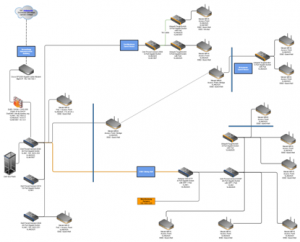There are many people who don’t like to read the first section of the Christian Bible that’s called the Old Testament. I’m not one of them; I rather like it. It helps me feel connected to the long flow of humanity who are God’s people.
Whether you’ve read the OT or not, there’s a good change that you’ve heard of the Levites. I’m not going to give you their full history here, but instead point out just a few things:
- They served God full-time and received their living from Israel’s other tribes.
- Their duties were divided among the three clans of the tribe.
One of these clans was called the Merarites. These are the folks I identify with the most. Read this from Numbers 3:
The descendants of Merari were composed of the clans descended from Mahli and Mushi. There were 6,200 males one month old or older among these Merarite clans. They were assigned the area north of the Tabernacle for their camp. The leader of the Merarite clans was Zuriel son of Abihail. These two clans were responsible for the care of the frames supporting the Tabernacle, the crossbars, the pillars, the bases, and all the equipment related to their use. They were also responsible for the posts of the courtyard and all their bases, pegs, and ropes.
(Numbers 3:33-37, New Living Translation)
Full-time. Frames, posts, ropes, and stuff. Zuriel, I am totally with you, brother.
I just wish that the infrastructure that I take care of with my fellow Technites was as simple as Zuriel’s.
as simple as Zuriel’s.
The Tabernacle was at the center of the Israelite camp. One thing that is close to the center of Wycliffe’s existence – and, for that matter, the center of many organizations, companies, and, oh, human relationships – is communication.
For 138 years, the telephone has served humanity as an efficient means of communication. Over that time, the basic concept hasn’t changed, but things sure look different under the hood now. If Bell and Marconi could see us now!
Last fall, our office purchased a new phone system to replace an aging one that was causing occasional problems. “Last fall?” you ask, “Why are you telling us now?”
 The answer has to do with the timing of fiscal years and, uh, my complete inexperience with phone systems, whether modern or ancient. Progress in configuring our new-fangled contraption went slowly as I learned and experimented. Eventually, I was ready for us to order the new phones that would go with the thing. Thankfully, it’s a small office, and I was able to put the system and the phones into service this spring.
The answer has to do with the timing of fiscal years and, uh, my complete inexperience with phone systems, whether modern or ancient. Progress in configuring our new-fangled contraption went slowly as I learned and experimented. Eventually, I was ready for us to order the new phones that would go with the thing. Thankfully, it’s a small office, and I was able to put the system and the phones into service this spring.
There are a few chief benefits to this phone system. First, it provides voice mail and email notifications to our well-traveled staff. Second, our staff members can connect their computers to the phone system over the Internet and use it to make calls at much better rates. And thirdly, we can eventually integrate interested offices in other parts of Europe so that it’s easier and cheaper to stay in touch. We are, after all, here to ensure their success in peopling and financing the Bible translation effort.
 So here I sit in my office, a more comfortable little command center than Zuriel ever enjoyed. Behind me is one screen that lets me tell the network how to move data to the phones and power them. The other helps me to easily manage the phone system and the phones themselves. (Black phone new, white phone old.)
So here I sit in my office, a more comfortable little command center than Zuriel ever enjoyed. Behind me is one screen that lets me tell the network how to move data to the phones and power them. The other helps me to easily manage the phone system and the phones themselves. (Black phone new, white phone old.)
I don’t have to haul physical posts and stands from one campsite to the next. The infrastructure I handle is different in this age. Instead, it’s a pile of plastic, metal, and wire that I set up to make sure that the fundamental need for telecommunications in place. Thanks to the new system, the people I serve can move campsites and – so long as they have an Internet connection – still stay in touch.



